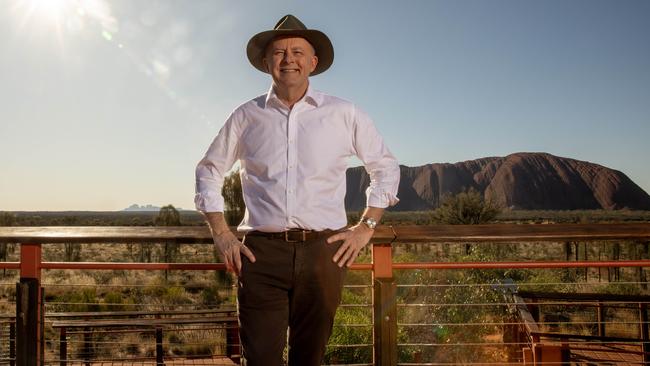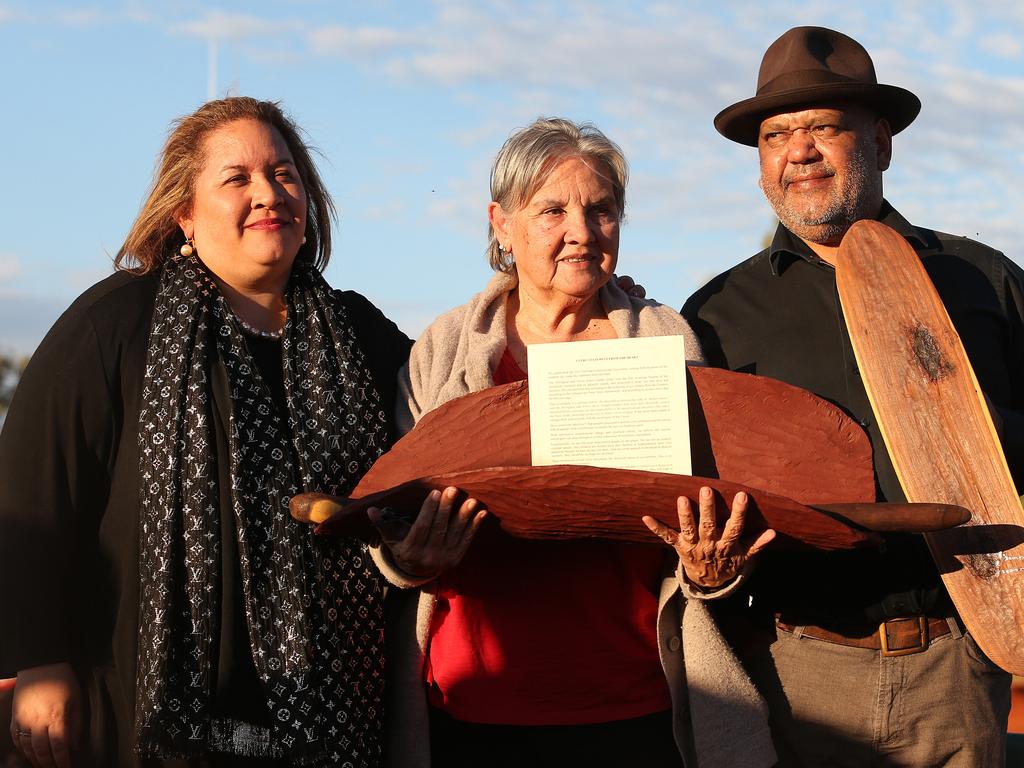
“Nothing to fear here,” Albanese told his audience. The voice would be “simply a non-binding advisory committee”.
Government non-binding advisory committees serve much the same function as Maggie’s steering wheel in the title sequence of The Simpsons by giving people the feeling that they are in the driving seat while keeping them away from the accelerator.
The minutes of non-binding advisory committees sit unread in the bottom of ministerial in-trays for months before gravitating towards the shredder. Our nation’s founders, in their wisdom, did not include non-binding advisory committees in the Constitution.
The Prime Minister’s 11th-hour attempt to water down the significance of the voice sits awkwardly with his expansive rhetoric at the Garma Festival 14 months ago. Enshrining the voice in the Constitution would be “a momentous change”, he said. It would be “an unflinching source of advice and accountability … a body with the perspective and the power and the platform to tell the government and the parliament the truth about what is working and what is not”.
Yet last week, the PM had changed his tune. He said the voice was “just a committee able to make representations to government”. There was no use of the words “power” or “accountability”, nor indeed of “First Nations people”.
We are left with the disturbing feeling that even the PM doesn’t know what the voice will do, that this regrettable episode in constitutional adventurism stems from no conviction other than a generalised belief in social justice. The host of Brisbane’s ABC Drive, Steve Austin, tried to discover the PM’s hidden depths earlier this month by asking him what he meant when he described himself as “a progressive”.
Austin: “What are we progressing towards? What is the endpoint for a progressive today?”
Albanese: “Well, there is no endpoint, by definition.”
Austin: “That means we’re on the treadmill.”
Albanese: “No, it doesn’t at all. It means you constantly progress and move forward.”
Austin: “Forward to what? To a mythical nirvana?”
Albanese: “No, to a more inclusive society. To one that has greater opportunity regardless of people’s birth or people’s ethnicity or religion or gender.”
Thomas Sowell has delivered a compelling critique of the social justice movement in his new book, Social Justice Fallacies. Sowell, an African-American economist in his 90s, has been studying the application of social justice to race politics in the US for more than 60 years.
“We might agree that ‘equal chances for all’ would be desirable,” he writes. “But that in no way guarantees that we have either the knowledge or the power required to make that goal attainable, without ruinous sacrifices of other desirable goals, ranging from freedom to survival.”
The implicit assumption that high poverty rates among African-Americans can be blamed solely on racial discrimination fails the test of empiricism. The poverty rate for married black couples is consistently lower than the poverty rate for black Americans as a whole. “If black family poverty is caused by ‘systemic racism’, do racists make an exception for blacks who are married?” asks Sowell. “Do racists either know or care whether blacks are married?”
Sowell finds more evidence that strikes a discord with the social justice narrative in the Appalachian regions of Kentucky, where the median household income is not only less than half the median household income of white Americans in the country as a whole but also thousands of dollars less than the median household income of black Americans in the country as a whole. Since 90 per cent of the population is white, it is hard to see how race can be a factor.
The tendency of Australian social justice advocates to categorise Aboriginal and Torres Strait Islanders as a homogenous group encourages the same errors in Australia. The Australian Institute for Health and Welfare highlight that 35 per cent of Aboriginal and Torres Strait Islanders are in the lowest income quintile.
Yet that hides the evidence that there is no difference in average income between middle-class Indigenous Australians in the capital cities, 60 per cent of whom occupy the middle three quintiles. They may be moderately over-represented in the bottom quintile (26 per cent) and under-represented in the top (14 per cent).
The real disparity, however, occurs in remote communities (49 per cent in the bottom quintile) and the very remote (69 per cent).
There are substantial disparities between states and territories. In the NT, 66 per cent of Indigenous people are in the bottom quintile compared to 28 per cent in Victoria. And the ACT’s Aboriginal and Torres Strait Islander population is virtually indistinguishable in demographic terms from their non-Indigenous neighbours. Yet the social justice narrative insistence that people be considered as categories rather than individuals compels us to consider them as victims.
Albanese’s claim that the voice will bring concrete improvement to Indigenous Australians by allowing their wisdom to be heard is built upon what Sowell describes as the chess piece fallacy, the conviction that a great and wise elite can arrange society as if they were arranging pieces on the board.
There is no reason why the voice will succeed better than other elite groups that assume it has a perfect grasp of consequential knowledge and knows how to order other people’s lives better than they can themselves.
There is nothing to suggest how it will overcome the problem of imperfect knowledge any better than ATSIC or its largely forgotten predecessors.
“It is humbling to discover how many of our glib assumptions, which seem to us novel and plausible, have been tested before,” wrote British historian Paul Johnson. “Not once but many times and in innumerable guises; and discovered to be, at great human cost, wholly false.”
Nick Cater is senior fellow at Menzies Research Centre.








Anthony Albanese’s address at South Sydney Oval last Saturday is unlikely to go down as one of the great Redfern speeches. He wasn’t trying to lay out a grand sweeping vision. He was trying his hardest to pull one back.